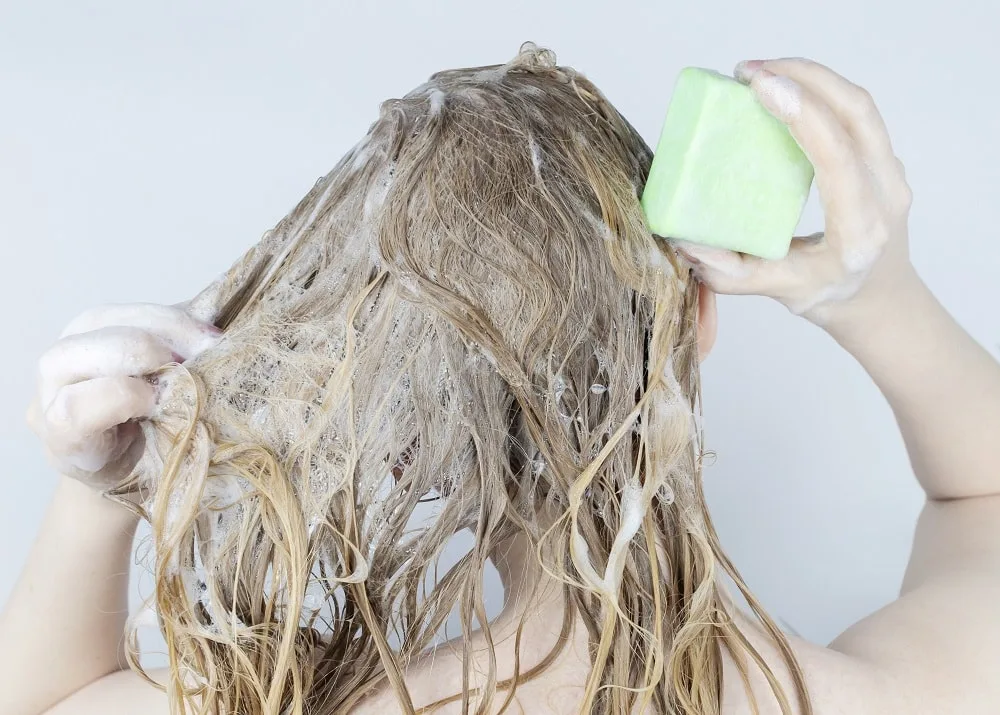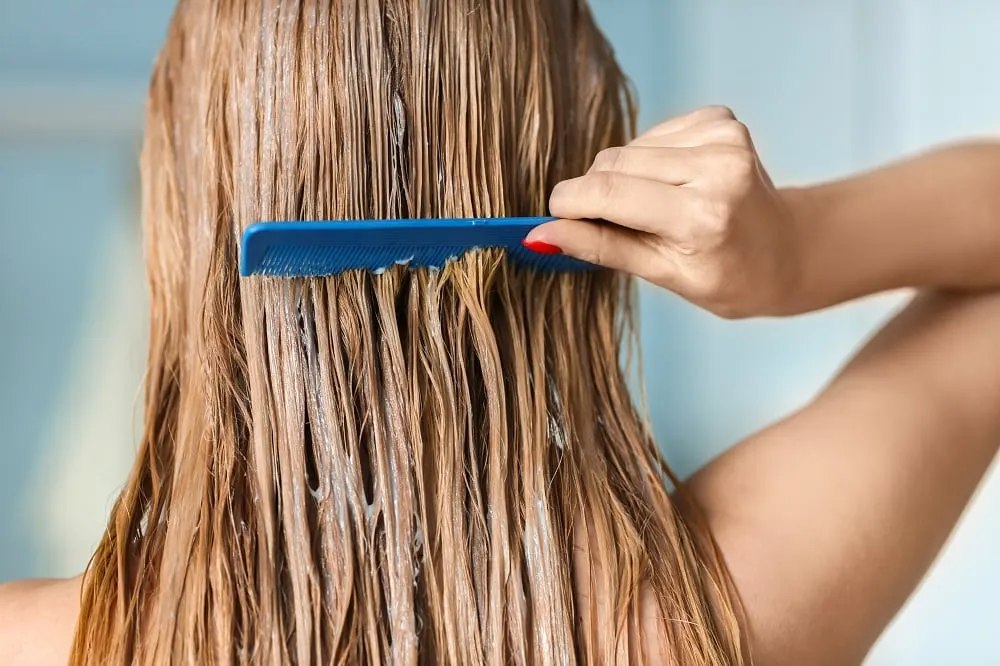Hair color differences come from the variety of pigments known as melanin in the hair. Bleaching is a process of lightening or removing that natural hair color or tint.
Men, women, and celebrities across the globe bleach their hair with bleaching agents to achieve a lighter shade and combine it with toning to add a hue of their choice.
However, the chemical process is not risk-free and might damage your hair as it comprises the internal structure of the hair.
Accordingly, proper care of the hair by following a strict haircare routine post-bleaching and toning care is crucial to maintain the color and moisture of your hair. A vital aspect of it includes washing your hair.
If you are wondering how to wash hair after bleaching and toning, read on to learn all you need to know!
Washing Hair After Bleaching and Toning
The process of expelling underlying pigment molecules from your hair comes with some negative consequences. Bleaching agents not only extract the pigments but also weaken the hair shaft by leaving the hair strands weakened and susceptible to falling off.
Studies reveal that chemical bleaching agents weaken the outer layer (cuticle). Such hair is prone to dryness and breakage.
You should wash hair after bleaching and toning cautiously and without overdoing it, as it may add to the breakage of fine hair.
The following are some crucial tips to follow when it comes to washing your hair after bleaching and toning:
Avoid Immediate Washing of Hair
You should avoid washing your hair for at least two to three days, i.e., 48-72 hours after bleaching and toning. Bleaching leaves the hair’s outer cuticle (layer) open, allowing the alkaline agent to penetrate effectively.
The color from the toner is also settling in during this period, and washing your hair or applying shampoo will disrupt the process.
Washing your hair after the recommended period will also help retain the natural moisture, which had been removed during the chemical process, preventing them from becoming dry, brittle, and frizzy.
Use Cold Water to Wash Off

When washing your hair, rinse it with cold water. According to a study, hot water damages the cortex and cuticle (layers of hair)
As bleached hair already has opened cuticles, exposure to hot water can aggravate the damage on the scalp by allowing the pigments to escape and further stripping away moisture. Thus, washing the hair with cold water will protect the inner layer of the hair and seal the open cuticles.
Wash Less Frequently
As bleaching dries out the hair, it is essential to avoid washing and applying shampoo frequently in the first few weeks, as it will only add to the problem.
Allow sufficient time for the hair to dry out. Wait for at least three days in between washes.
Frequent washing can further damage the hair by not allowing the scalp enough time to produce the natural oils it needs to maintain good hair health.
Use Sulfate-Free Shampoos

Bleached hair is prone to breaking and falling. Thus, selecting the right shampoo and conditioner is pivotal.
When it is time to wash your hair, you must choose a sulfate-free shampoo. Sulfates can remove the natural oils and moisture from your hair, leaving it dry and brittle.
Research shows that modern hair cosmetics are free of sulfate, which allows them to be beneficial for weak and broken hair.
Sulfate-free shampoos may cost you a little more than the average ones, but they are worth the money!
Use a Conditioner

Keeping bleached hair hydrated is another indispensable aspect of maintaining healthy hair after bleaching and toning. That is where conditioners come in. Every time you wash your hair, apply a deep conditioner to keep your hair moisturized and prevent frizz.
You can also use leave-in conditioners after showering to add shine to your hair while maintaining sufficient protection against dried-out hair and hair styling.
How to Care for My Hair Immediately After Bleaching?
Ensure your hair is hydrated after bleaching to keep your scalp nourished. Avoid washing the hair for 48 to 72 hours after bleaching and toning.
Apply conditioners and essential oils to prevent frizz and dry hair. Avoid heat styling the hair and use DIY hair masks.
Conclusion
The bleaching and toning process can compromise the strength of your hair, rendering it dry, weak, and prone to breaking. Washing hair after bleaching and toning is a delicate yet important step, requiring you to adjust your washing and shampooing regime for some time after the procedure.
You should avoid washing the hair for 72 hours to let the toning colors set in. After this period, you should rinse the hair with cold water to seal the opened cuticles and reduce the hair-washing frequency to every three or four days.
Using sulfate-free shampoos can help protect the color while strengthening the hair by preventing dry and rough hair. Applying a conditioner or using a leave-in conditioner after washing can help hydrate the hair and maintain its shine.
FAQs
The following are some frequently asked questions regarding washing hair after bleaching and toning:
Yes, the application of toners requires the hair to be damp (but not dripping wet). You can wash hair after bleaching and before toning to get better results. You should wash the hair and towel dry them before toning.
It’s not advisable. The dye will fade if you immediately wash your hair after the process. The colors need 48- 72 hours to penetrate the hair strands. If you must wash the hair after 24 hours, do it with cold water only.
You must reduce the frequency of hair wash in the first three weeks after bleaching and toning. Frequent washing after bleaching and toning can lead to frizz and damage. Thus, you should wash your hair after a space of at least 3 or 4 days.
Related Topics
